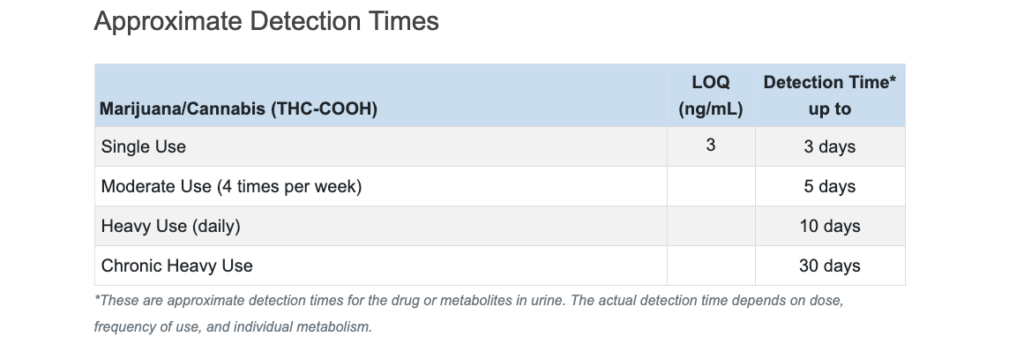Smoking weed and still feel high after 2 days is no miracle. The herb works in mysterious ways, one of which, it stays longer in your system than you think.
It has happened to me severally. But in my case, it’s never a two-day straight high. Instead, I’ll be intensely high for 3 hours. Then I’d be having flashes of the high days after the session.
Now that I think about it, feeling high days after smoking could be happening to most people, but they smoke blunts in too quick succession to leave room for the kickbacks.
If you’ve ever had a tolerance break, you’ll sometimes notice you just become your stoned self. For example, you will be five days into your tolerance break but feel like you’re high.
It is a known feeling, and it’s known in the stoner circles as phantom high. It is more physical; you’ll find yourself a little slow-paced and chill.
It doesn’t stay for long, but it stays long enough for your body to take the full glory of the sporadic THC bursts.
The feeling of being high without smoking is hard to describe. You have to experience it to feel it.
Feeling high without smoking is mostly common among frequent users. And though it is harmless, it can be a little startling when you’re trying to break from THC. So let’s find out if the feeling can be backed up by science.
Why Do I Still Feel High After 2 Days?
When you smoke weed, the THC doesn’t get out of your system the minute the high ends. The body stores the THC in the fat tissues, releasing it into the bloodstream when the body is stressed.
Whenever the body has to go back to its fat tissues for fuel, it will inject the remnant THC into the bloodstream, and that is enough to give you a high many days after you last smoked.
THC is highly fat-soluble. Its slow release into the bloodstream explains why THC-COOH will be detected for longer after smoking weed. THC-COOH is the waste from THC breakdown.
Your body hoards some THC in the form of 11-hydroxy-THC for later utilization. This study proposes that this remnant THC the body stores is responsible for the flashbacks.
When the body is starved, it releases the THC-containing fats into the blood, giving the phantom highs.
My favorite novelist and member of the House of Lords of the United Kingdom, Jeffrey Archer, wrote an interesting segment about how cannabis usage is troublesome in jail.
In his book, A Prison Diary, he reiterates how inmates avoid weed because it can be detected in urine weeks after use.
Unlike weed, snow can only be detected in blood tests for only 8 hours after administration.
All an inmate had to do after using snow is wait for the high to calm, then drink lots of water to clear the metabolites in even fewer hours.
Jeffrey wrote the book while serving term. After reading the book, it made sense how phantom highs work.
In his view, most cannabis users became snow addicts because snow has a short half-life— 30 minutes. Half-life is the time it takes for drug concentration to be cleared by half from the body.
Even if you don’t flush with water, it won’t show on urine tests after 8 hours of administration.
Unlike snow, urine tests can detect THC in the urine several days after smoking. According to a study, THC can be detected in the body 100 days after smoking.
Interestingly, the more you smoke, the longer it takes to remove all the cannabis metabolites in the body. According to Mayo Clinic Laboratories, the presence of tetrahydrocannabinol carboxylic acid (THC-COOH) indicates exposure to THC 3 days after use. For chronic users, THC-COOH will still be present 30 days after use.

The Vice mentions another study of abstinence that involved 86 chronic users. According to the study, only 32.7% of the users had weed-free urine after 30 days. The rest took longer.
Why Do I Still Feel High The Day After Smoking?
You can smoke weed and feel high the day after smoking because weed never dissipates entirely. For seasoned users, the body has enough THC in its reserves that can sustain your yesterday’s high. But the feeling can be caused by other reasons.
- Low rate of metabolism— The rate of metabolism determines how fast THC is ejected from your body. THC is metabolized in the liver and leaves the body through excretion and urination.
If your metabolism rate is slow, the THC will take longer in your body because it’s released into the bloodstream slowly, thus extending your high.
- Potency— Some strains are more potent than others. The level of THC determines the weed’s potency. If you smoke weed higher in THC, you will have a more intense and longer-lasting high.
- Age of the user— According to this research by Dr. Frances Jensen, weed lasts longer on a teenage brain than on an adult’s brain.
The teenage brain is more susceptible to longer-lasting highs than adults because it is not myelinated.
Dr. Frances Jensen is the chair of the Department of Neurology at the University of Pennsylvania Perelman School of Medicine. She has done extensive research on why the teenage brain is more addiction-prone.
I wrote an extensive article on factors that influence how long a cannabis high last. It will help you put everything into perspective.
In conclusion, it is normal to smoke weed and still feel high days later. However, it’s not something that should worry you if you’re having your tolerance break or trying to quit smoking weed.
It happens because THC is highly fat-soluble. It thus gets absorbed and stored in fat tissues and later gets released into the bloodstream slowly, igniting a high.
The THC bursts can happen any time, but when you exercise, the body is forced into breaking down fats for energy. This will cause a sudden surge of THC in the blood, making you high several days after you smoked last.

